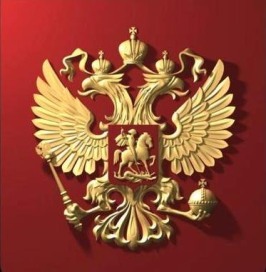BRUSSELS, December 19. /TASS/. Kirill Logvinov, who has been running the Russian mission to the EU since September, on Monday said Russia doesn’t view the conflict in Ukraine as a local one, but regards it as an acute phase of a broad hybrid war that the West unleashed on Russia.
Summing up the past year in an interview with TASS, the diplomat, a successor to former envoy Vladimir Chizhov, said the EU hasn’t taken the chance to reach a mutual understanding with Russia.
"We see what is happening not as a local conflict, but as a hybrid war unleashed by the West on Russia in the political, economic, humanitarian and information areas," he said. "If we talk about agreements, the West, including the EU and its member states, had a chance to reach an agreement, to prevent the development of the situation according to the current scenario. They didn’t use it, and it was in a defiantly dismissive manner in relation to the interests of Russia, and indeed of the whole of Europe."
"The reluctance to think about the future applies not only to Russian proposals for security guarantees, but also to other areas where we had practical agreements with the European Union so far, including economic and humanitarian areas," the diplomat said.
Point of no return
According to Logvinov, Brussels is trying to represent the beginning of the special military operation in Ukraine as a "point of no return" in relations with Russia.
"That’s done solely in order not to mention such episodes as, for example, the outright blackmail of the then President of Ukraine [Viktor Yanukovych] by the EU and its member states on the eve of the Eastern Partnership summit in Vilnius in November 2013 or the de facto support of Kiev in its sabotage of the Minsk agreements, which lasted for many years," he said.
Redistribution of power
The envoy said Brussels now is trying "to take away from European capitals part of the sovereign powers in areas that don’t fall within the competence of the European Union." He highlighted the fact that essentially, the EU institutions are trying to make the most important decisions by themselves, pushing aside national governments. That’s how Brussels is trying to exclude any unpredictability associated with the need to ensure consensus in the development of key decisions by the bloc's states, in particular, trade and political ones.
"During the acute phase of the COVID-19 pandemic, the EU supranational organizations have significantly expanded their powers in the field of healthcare, now the European Commission seeks to be at the forefront of efforts to overcome the energy crisis, seeking to be a coordinator for joint purchases of gas by member states from the spring of 2023," he said. "For us, the fundamental point is that the redistribution of powers is carried out not so much against the background of numerous crises, but under the pretext of the ‘Russian threat'."
Lessons from conflict
The Russian diplomat said he believes that the question of how significant a role the European Union will play in the future world system will ultimately be decided by the regional community itself.
"Today, the entire system of international relations is undoubtedly undergoing a tectonic shift. And at some stage, when stabilization begins (and this will inevitably happen), we - and I am talking now not only about Russia, but about all sensible representatives of the international community, which is by no means limited to Europe or the West - will have a real chance to lay the foundations for a new, fairer world order based not on the ‘rules’ invented by one side, which can be rewritten in the course of the ‘game,’ but on the principles of genuine mutual respect and equality," Logvinov said.
Published on https://tass.com/politics/1552711























